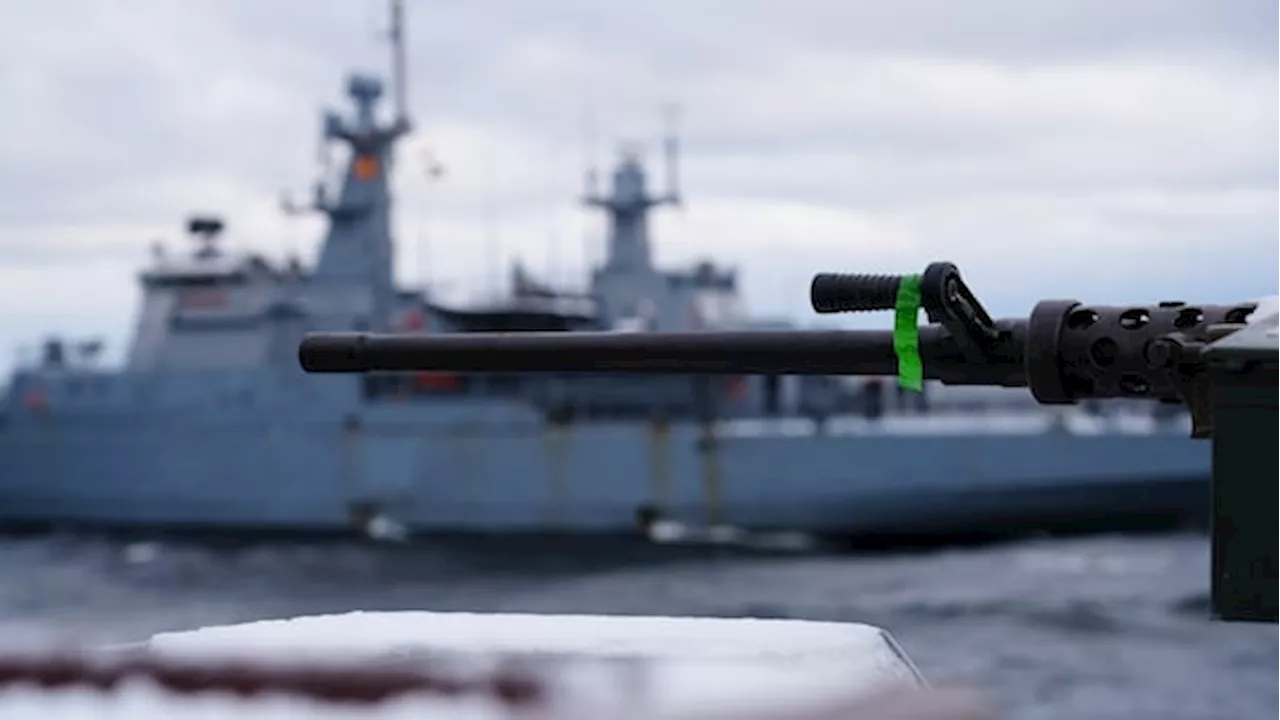Following a series of unexplained undersea cable cuts in the Baltic Sea, NATO nations are increasing their presence in the region. Estonian patrol ships are closely monitoring vessels, including those suspected of being part of Russia's 'shadow fleet'. While investigations are ongoing, concerns about potential sabotage are growing. The Baltic Sea's importance as a shipping lane and the vital role subsea cables play in global internet connectivity have heightened the stakes.
At a time when the eight NATO nations bordering the Baltic Sea are on high alert after a string of undersea power and internet cables were suspiciously severed, Russia's shadow fleet is getting extra attention. Estonia, along with NATO , has ramped up patrols of the Baltic Sea after three separate incidents of undersea cables being damaged.
On the bridge of the Estonian warship Sakala, a crew member out on patrol moves a camera, zooming in on a Panama-flagged oil tanker 300 meters away in the Gulf of Finland. The tanker, which left a Russian port bound for Egypt, is considered by maritime experts to be a member of Moscow's shadow fleet — often old tankers with opaque ownership that try to work around international sanctions. 'We are here to guard our waters,' said Lt. Cmdr. Meelis Kants in an interview with CBC News on Wednesday. Lt. Cmdr. Meelis Kants of the Estonian minehunter Sakala says they are photographing vessels navigating the Gulf of Finland. About 500-600 ships move through that area every week. The Sakala, which is a minehunter, is one of three Estonian ships that have been sent to patrol a stretch of the Baltic Sea near the mouth of the Gulf of Finland and near the site of two underwater power cables that connect Estonia to Finland. At the time, it was the third incident in five weeks where undersea cables were damaged — and suspicion centered around ships connected to Russia. Russian-linked ships are suspected of sabotage in the Baltic Sea. Some say it may be just the beginning. Since then, Estonia and Finland have boosted their patrols, along with NATO, which has sent frigates, aircraft and naval drones to the area as part of the operation. While investigations into the damaged cables are still ongoing, and there appears to be divided opinion on whether the incidents were accidental or sabotage, NATO countries are concerned enough that they have stepped up monitoring in order to protect the critical infrastructure. In Estonia's case, the navy is patrolling by looking out for suspicious activity, such as anomalies with anchors and where they are supposed to be positioned. Other red flags include if a ship quickly changes speed or is ignoring radio communication. Over the past two months, the crew on the Sakala said they looked into 50 potentially suspicious activities. But upon closer inspection, there have been no issues. The day before the crew took media including CBC News on patrol, they said they had started watching a vessel after they noticed something wrapped around its anchor. It turned out to be a hose. There wasn't an issue in that case, nor have they encountered any threatening actions over the past two months. 'But if we weren't here, I don't know what would happen.' The Baltic Sea stretches from St. Petersburg, Russia, to Denmark, and is one of the world's busiest shipping lanes. Every week, 500-600 ships transit the Gulf of Finland. Their positions are tracked, but it's what is happening below the surface that is murkier, and why NATO countries are trying to deter any threats against the subsea cables on the bottom of the sea floor. The cables span the world's oceans and seas, together stretching 1.5 million kilometers around the globe. The fiber optic communication cables are referred to as the backbone of the internet, carrying 95 percent of the world's data. While cables are damaged every year by anchors, commercial fishing, and even environmental factors like submarine landslides, the fact that there were three incidents in the same area over a relatively short time period has raised suspicions. 'Is it intentional or is it an accident? It's difficult to answer,' said Capt. Johan-Elias Seljamaa, deputy commander of Estonia's navy. 'But the fact is that prior to those, there was no damage in such magnitude and in those areas.' Before the cables were severed on Dec. 25, there were two separate incidents just over a month earlier. A 218-kilometer internet cable between Lithuania and Sweden's Gotland island was damaged on Nov. 17. The following day, a 1,200-kilometer cable connecting the Finnish capital of Helsinki to the German port of Rostock was severed.
Security BALTIC SEA NATO RUSSIA SABOTAGE SUBSEA CABLES SHADOW FLEET ESTONIA INTERNATIONAL RELATIONS CYBERSECURITY
Canada Latest News, Canada Headlines
Similar News:You can also read news stories similar to this one that we have collected from other news sources.
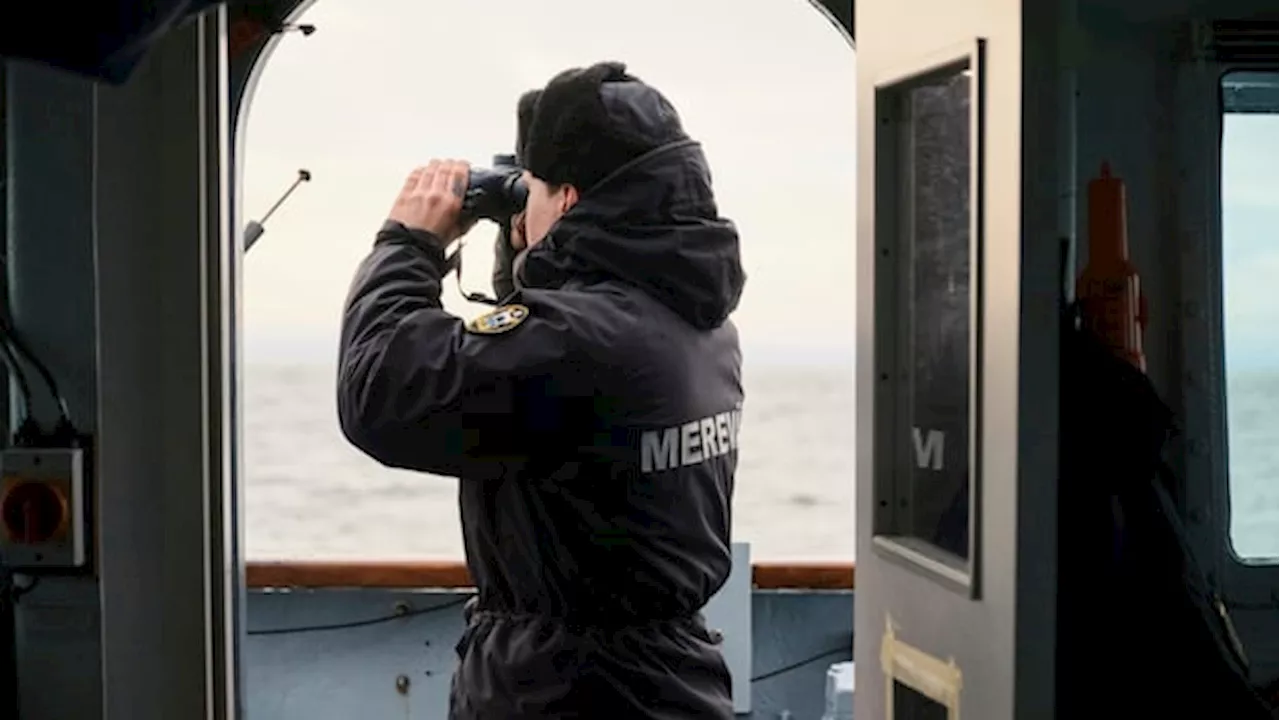 NATO Steps Up Baltic Sea Deterrence Amid Suspected Subsea Cable SabotageNATO and its eight Baltic Sea allies are increasing efforts to prevent sabotage after a series of incidents damaged critical undersea power and telecommunications cables. Finnish authorities seized a Russian oil tanker suspected of being involved in cutting a power cable connecting Finland to Estonia. While no one has directly blamed Russia or China, officials are concerned about the potential for further attacks on vital infrastructure in the region.
NATO Steps Up Baltic Sea Deterrence Amid Suspected Subsea Cable SabotageNATO and its eight Baltic Sea allies are increasing efforts to prevent sabotage after a series of incidents damaged critical undersea power and telecommunications cables. Finnish authorities seized a Russian oil tanker suspected of being involved in cutting a power cable connecting Finland to Estonia. While no one has directly blamed Russia or China, officials are concerned about the potential for further attacks on vital infrastructure in the region.
Read more »
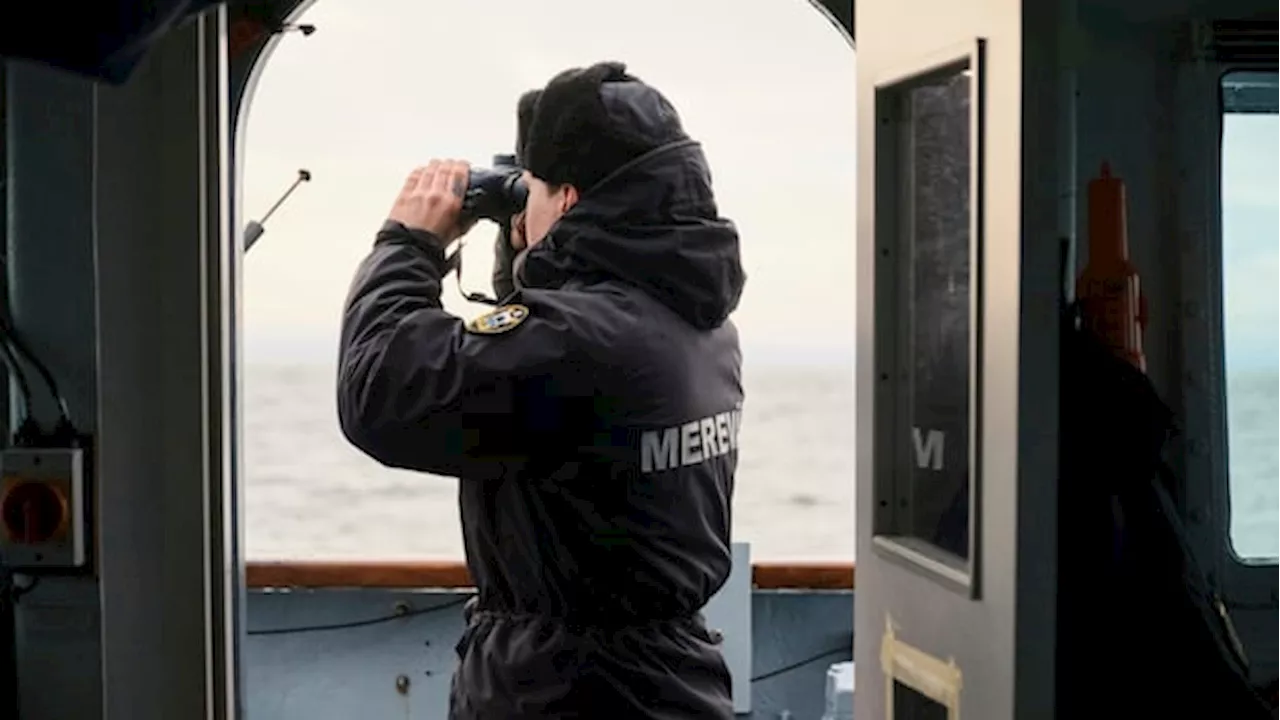 NATO's Baltic Sea allies band together to deter suspected sabotage of undersea cablesAn Estonian naval ship sails in the Baltic Sea on Thursday, Jan. 9, 2025, as part of stepped-up NATO patrols in the region following suspected sabotage of undersea cables.
NATO's Baltic Sea allies band together to deter suspected sabotage of undersea cablesAn Estonian naval ship sails in the Baltic Sea on Thursday, Jan. 9, 2025, as part of stepped-up NATO patrols in the region following suspected sabotage of undersea cables.
Read more »
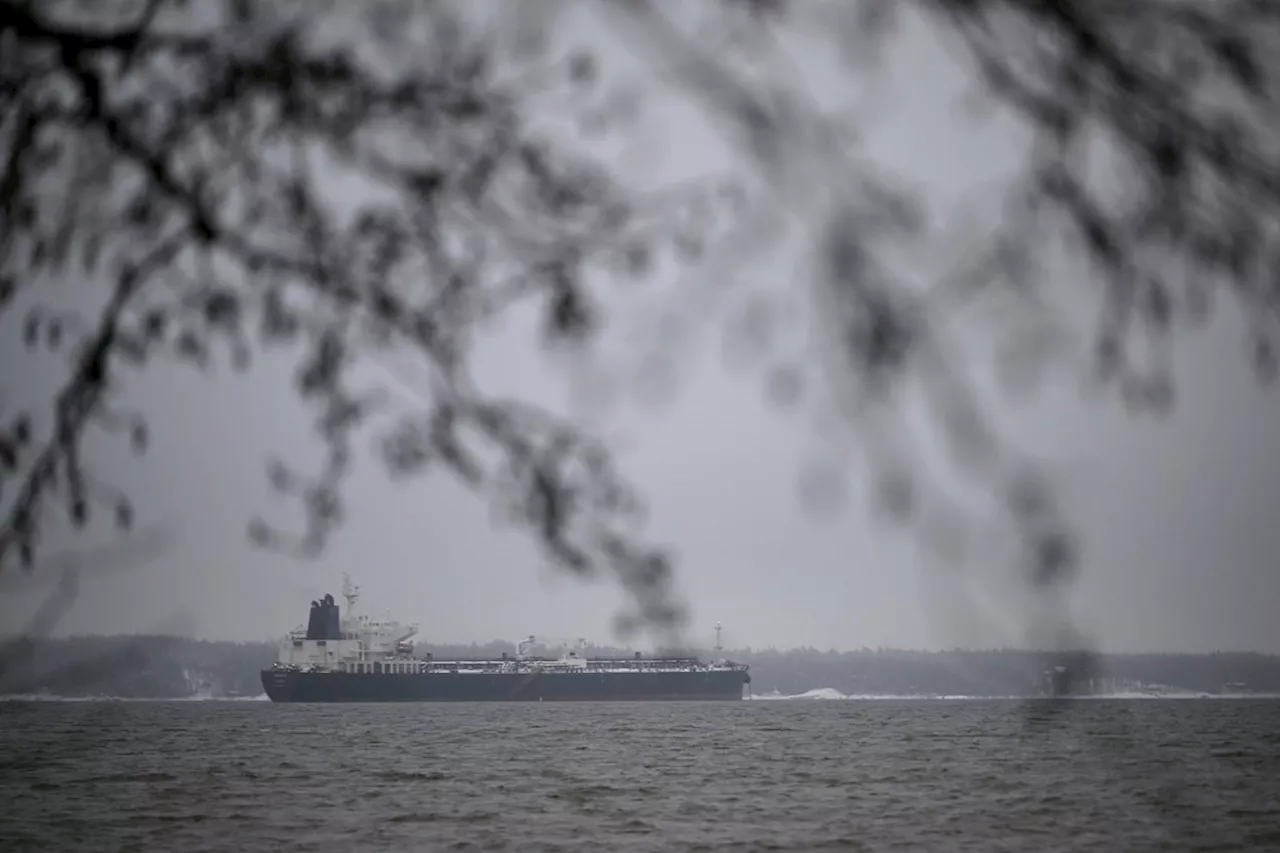 Undersea Cable Between Latvia and Sweden Severed, Suspected External DamageAn undersea fiber optic cable connecting Latvia and Sweden was damaged on Sunday, Latvian officials reported, suggesting external influence as the cause. Investigations are underway, with the Latvian navy patrolling the area and coordinating with NATO and Baltic Sea nations. This incident follows a pattern of similar incidents in the Baltic Sea region since Russia's invasion of Ukraine.
Undersea Cable Between Latvia and Sweden Severed, Suspected External DamageAn undersea fiber optic cable connecting Latvia and Sweden was damaged on Sunday, Latvian officials reported, suggesting external influence as the cause. Investigations are underway, with the Latvian navy patrolling the area and coordinating with NATO and Baltic Sea nations. This incident follows a pattern of similar incidents in the Baltic Sea region since Russia's invasion of Ukraine.
Read more »
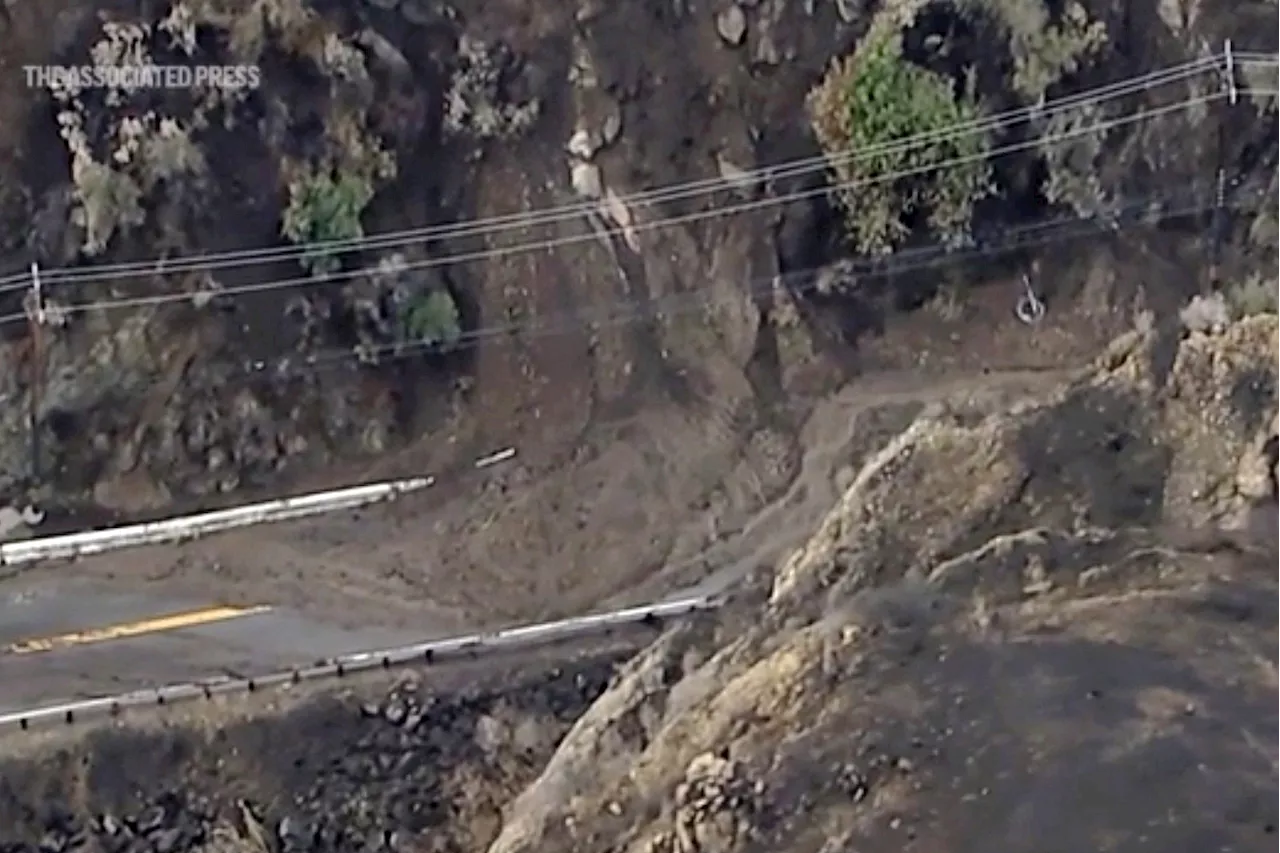 Rain Brings Relief to Firefighters, But Heightens Debris Flow Risk in Southern CaliforniaRain in Southern California offers some relief for firefighters battling multiple wildfires, but also raises concerns about mud and debris flows in areas scarred by the blazes.
Rain Brings Relief to Firefighters, But Heightens Debris Flow Risk in Southern CaliforniaRain in Southern California offers some relief for firefighters battling multiple wildfires, but also raises concerns about mud and debris flows in areas scarred by the blazes.
Read more »
 Baltic nations count final hours to ending electricity ties to RussiaNearly three and a half decades after leaving the Soviet Union, the Baltic countries of Estonia, Latvia and Lithuania this weekend will flip a switch to end electricity-grid connections to neighbouring Russia and Belarus, and turn to their European Union allies.
Baltic nations count final hours to ending electricity ties to RussiaNearly three and a half decades after leaving the Soviet Union, the Baltic countries of Estonia, Latvia and Lithuania this weekend will flip a switch to end electricity-grid connections to neighbouring Russia and Belarus, and turn to their European Union allies.
Read more »
 Baltic States to Disconnect from Russian Electricity GridLithuania announced that the Baltic states will disconnect from the Russian electricity grid and synchronize with Continental Europe on February 8, 2025.
Baltic States to Disconnect from Russian Electricity GridLithuania announced that the Baltic states will disconnect from the Russian electricity grid and synchronize with Continental Europe on February 8, 2025.
Read more »
